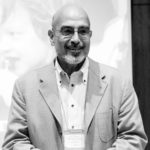Education is a fundamental human right owed to all people, especially children. The near-universal acceptance of this position is reflected in the numerous mechanisms of international law, including the Universal Declaration of Human Rights and the International Covenant on Economic, Social and Cultural Rights. The importance of this right is of particular importance to children as it can significantly impact the rest of their lives, for better or worse. The Convention on the Rights of the Child and other more recent developments in international human rights law have emphasised the importance of educating children and insisted that denying them education is a gross violation of their rights. It is important that we recognise the large number of children currently denied education, the need to rectify the situation, and the challenges to providing educational opportunities to vulnerable populations.
According to UNICEF, approximately 50 million children are currently displaced by conflict and poverty, and Save the Children reports that approximately four million children are currently out of school due to displacement. In addition to the immediate need of finding basic safety, these children need access to educational opportunities. It is estimated that over 150 million children are working rather than going to school today, and an estimated 40 million are enslaved. Getting children out of slavery and labour and into classrooms is critical for their future. It is reported that 93% of women living in rural Afghanistan are unable to read or write. How do we reach them so that their rights as children, women, and humans are ensured?
Even if these are extreme examples of the challenges to providing education to vulnerable populations, they serve to raise issues relevant around the world. How do we overcome prejudice and bigotry in educational systems to ensure ALL children have access to opportunities? What impact does instability in the home or community have on education? How do migrants find education in host communities? And how can we ensure equitable, quality education for all children?
Further, it is not enough to simply provide nominal access to education. That education must be effective and equitable. How do we ensure that all children are receiving the same level of quality education, especially in situations of vulnerable students?
Featured Panellists
Dexter Da Silva

Raz Shpeizer

Moneeba Mahmood

Brian Aycock

His undergraduate work was completed in the United States before beginning postgraduate studies in economics at the University of Glasgow. In 2017, Brian went back to school to study refugee law, earning his MA (Distinction) in Refugee Protection from the University of London. Brian is currently pursuing his doctorate at the International Christian University (ICU) in Japan, and serving as an adjunct lecturer at Keisen University and Oberlin University. His current research interests are in international law, particularly refugee and human rights law, and he is conducting research into legal protections for persons displaced by climate change.
